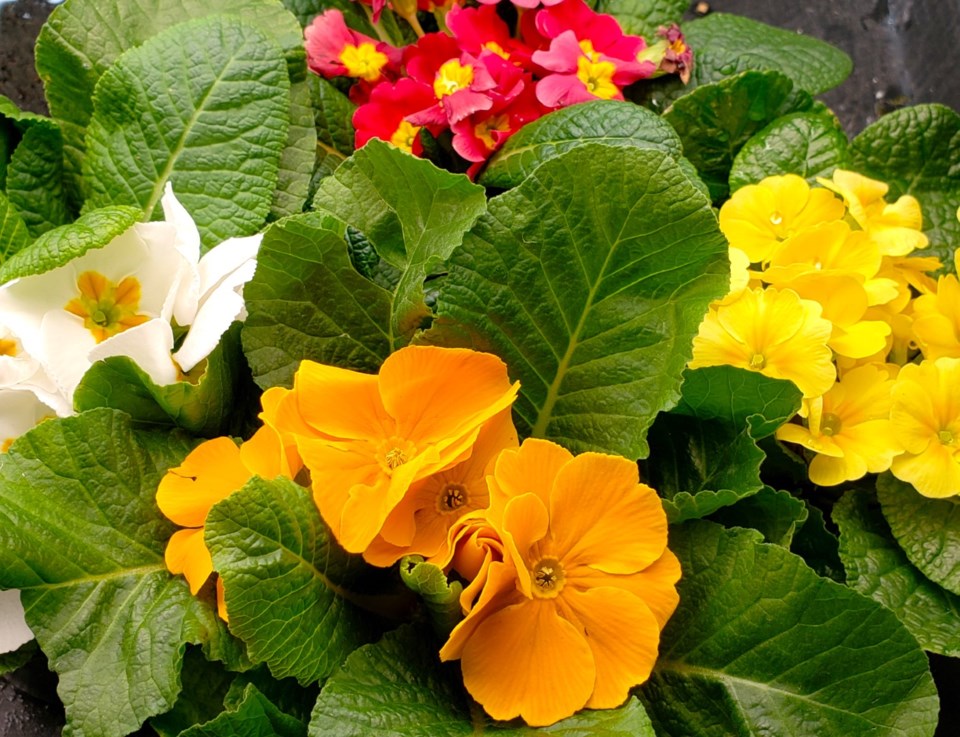Primula or primroses are perhaps the most wonderful or our spring blooming (and often fall) perennials. Right now they are available everywhere – your favourite floral shop, as well as the grocery and big box stores. Their happy colours make me smile while shopping for groceries and other household goods.
Polyanthus or auriculas are members of the Primula genus that boasts of over 425 species and literally thousands of hybrids. It was about the sixteenth century when primulas first began to grace gardens in Europe. It has been over 350 years since they were first cultivated for sale. There is a huge selection of plants available that are actually much more diverse than we commonly see here.
This very vivid spring blooming perennial shouts out the end of winter with bold yellows, reds, pink and blues. There is nothing that celebrates the end of winter with such pizzazz. How amazing that these low, ground-hugging rosettes of leaves can produce such a show. The blooms shoot up to the sky dancing above the leaves with weeks of long-lasting colour.
They require little care other than evenly moist soil that is rich in organic matter. The auricula primroses are native to the Alps, Apennines and Carpathian Mountains. They thrive in a neutral to slightly acidic moist, humus soil in sun or partial shade. They insist on good drainage as the thick stoloniferous roots will quickly rot in over damp conditions. Follow these guidelines in your garden and you will have years of success with an ever expanding patch of primula.
They require little fertilization as long as the soil is nutritious. If not, a light spring fertilizer is sufficient for happiness. Once they are well established they will benefit from division in early spring and as long as they are shared with other gardeners who have their own site that is humus rich and in a partially shaded site they will flourish.
There is actually a national auricula and primula society in the U.K. that is quite active in promoting the growth of primulas. There are plant swaps, contests and shows that are sure to please every primula fancier. In milder climes there is more variety grown including Border, Double, Alpine and Show Auriculas. For us, the Border Auriculas are the hardiest and the most successful in our gardens.
They can be grown from seed quite easily. Thompson and Morgan sells ‘Douglas Prize Mix’ and Stokes has a great selection of Primula acaulis in a multitude of single and mixed colours. To germinate they generally need to be chilled to break dormancy and then need a fairly specific condition that includes light for germination. It is generally very satisfying to successfully germinate seeds that need special conditions, however for first time growers, it is best to try something that is easier to be successful.
I think one reason why I love purchasing primula at this time of year as it truly says that spring is just around the corner. I bring home the primula to enjoy inside the home and in spring (our prairie spring) I simply plant them outside where they continue to happily bloom. Beware though that as they are generally shipped in from British Columbia they are finished being sold in March. So, don’t delay as the season is just about over.
Hanbidge is the Lead Horticulturist with Orchid Horticulture. Find us at ; by email at [email protected]; on facebook @orchidhort and on instagram at #orchidhort. Tune into GROW Live on our Facebook page or check out the Youtube channel GROW




